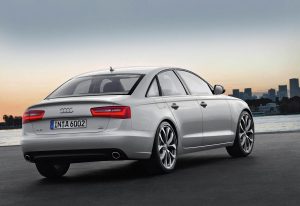In recent years, the automotive industry has been undergoing a seismic shift towards electrification. At the forefront Strategy of this change is Oliver Blume, the CEO of Volkswagen AG and Porsche AG. Under his leadership, both companies have been navigating the complex transition from traditional internal combustion engines to electric vehicles (EVs). This article explores
In recent years, the automotive industry has been undergoing a seismic shift towards electrification. At the forefront Strategy of this change is Oliver Blume, the CEO of Volkswagen AG and Porsche AG. Under his leadership, both companies have been navigating the complex transition from traditional internal combustion engines to electric vehicles (EVs). This article explores Blume’s strategic direction, the impact on Volkswagen and Porsche, and a comparative analysis of their approaches to EV development.
Oliver Blume: A Visionary Leader

Image by: yandex.com
Oliver Blume, appointed CEO of Volkswagen AG in September 2022 and Porsche AG since 2015, is known for his strategic foresight and leadership in transforming the automotive industry. Blume’s tenure has been marked by a strong focus on accelerating the shift towards electric mobility. His vision is centered on leveraging technological innovation to enhance sustainability and position Volkswagen and Porsche as leaders in the global EV market.
Key Initiatives Under Blume’s Leadership
- Investment in EV Technology: Blume has spearheaded significant investments in EV technology, focusing on developing new battery technologies and enhancing electric drivetrains.
- Expansion of EV Portfolio: Under his leadership, Volkswagen and Porsche have expanded their electric vehicle portfolios to include a diverse range of models catering to different market segments.
- Sustainability Goals: Blume has emphasized Volkswagen’s commitment to sustainability, aiming to achieve carbon neutrality across all operations and vehicles.
Volkswagen’s EV Strategy
Volkswagen, one of the world’s largest automotive manufacturers, has been aggressively pursuing an EV strategy under Blume’s guidance. The company’s approach involves a multi-faceted strategy aimed at both scaling up production and driving technological advancements.
Electric Platform Strategy
Volkswagen has invested heavily in its Modular Electric Drive Matrix (MEB) platform, designed to underpin a range of electric models. This platform is intended to provide flexibility and cost efficiency, enabling Volkswagen to produce a variety of EVs from compact cars to SUVs.
Expansion into Key Markets
Volkswagen is focusing on expanding its presence in key markets, including Europe, North America, and China. The company aims to establish a robust charging infrastructure and increase the availability of EV models in these regions.
Collaboration and Partnerships
Volkswagen has entered into strategic partnerships with various technology firms and energy companies to accelerate the development of EV technology and infrastructure. This includes collaborations on battery technology and charging solutions.
Porsche’s EV Strategy
Porsche, known for its high-performance sports cars, has also been adapting to the shift towards electrification. While maintaining its focus on performance, Porsche is integrating electric technology into its product lineup.
Performance-Focused EVs
Porsche’s approach to EVs emphasizes maintaining its reputation for high performance. The company’s flagship electric model, the Taycan, exemplifies this strategy with its high-speed capabilities and advanced driving dynamics.
Investment in Charging Infrastructure
Porsche is investing in high-speed charging networks to support its EV customers. This includes collaborations with charging network providers and the development of its own charging solutions.
Sustainable Manufacturing Practices
Porsche is incorporating sustainable practices into its manufacturing processes, including the use of renewable energy and sustainable materials in vehicle production.
Comparative Analysis
To understand the differences and similarities in the EV strategies of Volkswagen and Porsche, the following table provides a comparative overview:
| Aspect | Volkswagen | Porsche |
|---|---|---|
| Platform Strategy | Modular Electric Drive Matrix (MEB) | PPE (Premium Platform Electric) |
| EV Portfolio | Broad range including ID.3, ID.4, ID.5 | Performance-focused, e.g., Taycan |
| Market Focus | Europe, North America, China | Premium market with global reach |
| Charging Infrastructure | Extensive global network development | High-speed charging infrastructure investment |
| Partnerships | Technology and energy companies | Charging network providers |
| Sustainability Goals | Carbon neutrality and sustainable operations | Sustainable manufacturing and high-performance EVs |
Impact and Future Prospects
Impact on Volkswagen
Volkswagen’s aggressive EV strategy is expected to enhance its competitive position in the global automotive market. By leveraging the MEB platform and focusing on market expansion, Volkswagen aims to become a major player in the EV segment. The company’s commitment to sustainability and innovation aligns with broader industry trends and regulatory requirements.
Impact on Porsche
Porsche’s strategy to integrate high-performance characteristics into its EV lineup positions it uniquely in the luxury automotive market. The focus on performance and sustainability not only caters to Porsche’s traditional customer base but also attracts new customers interested in premium electric vehicles. The investment in charging infrastructure is crucial for supporting the growing EV market.
Future Prospects
Both Volkswagen and Porsche are well-positioned to benefit from the ongoing shift towards electric mobility. Volkswagen’s broad market strategy and extensive portfolio provide a solid foundation for growth, while Porsche’s emphasis on performance and luxury caters to a niche but lucrative segment. The success of these strategies will depend on their ability to navigate market dynamics, technological advancements, and regulatory changes.
Conclusion
Oliver Blume’s leadership is steering Volkswagen and Porsche through a transformative period in the automotive industry. By focusing on innovative technologies, expanding EV portfolios, and investing in infrastructure, Blume is positioning both companies for long-term success in the electric vehicle market. The comparative analysis highlights the distinct approaches of Volkswagen and Porsche, reflecting their unique market positions and strategic priorities. As the automotive industry continues to evolve, the impact of these strategies will be crucial in shaping the future of mobility.
















